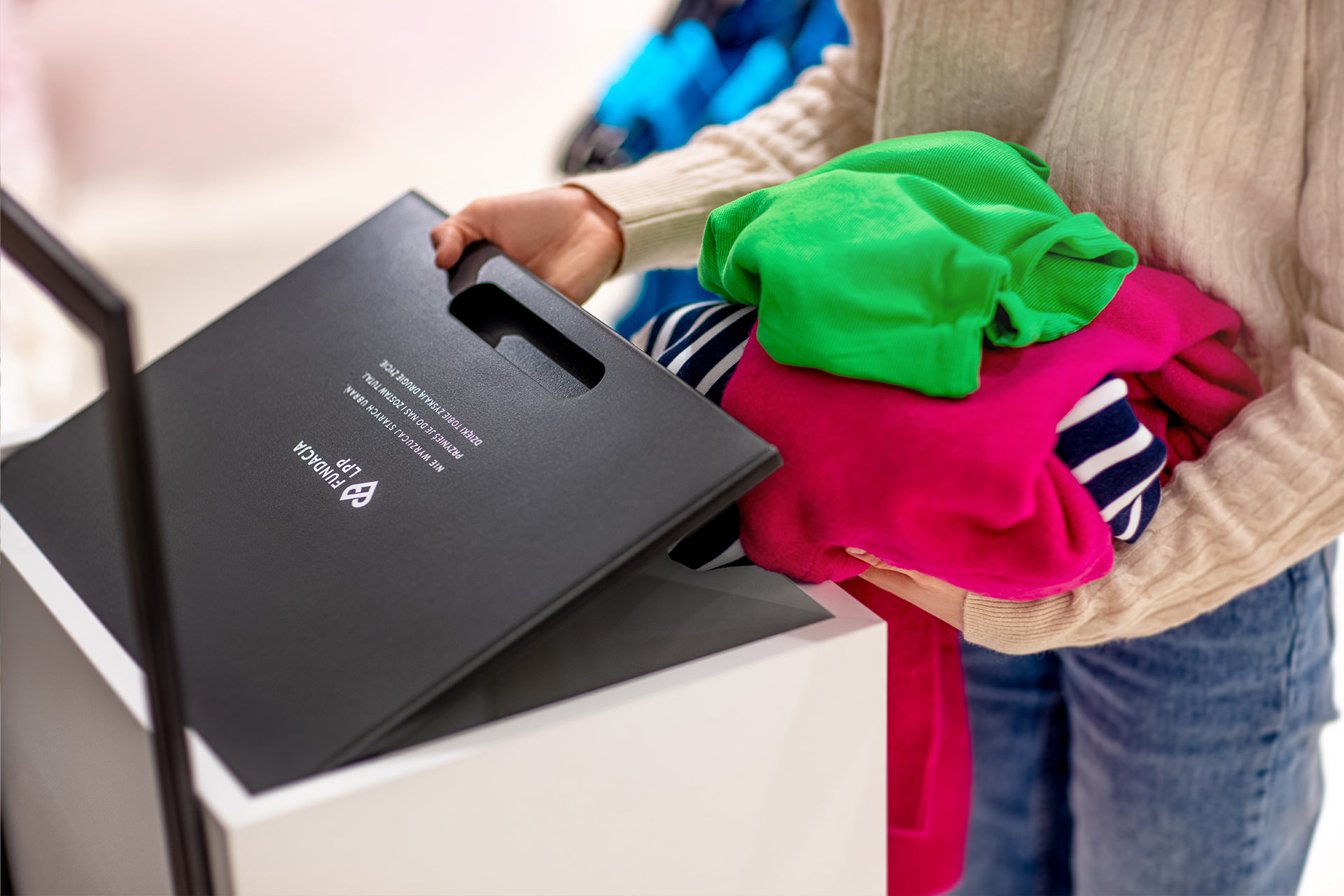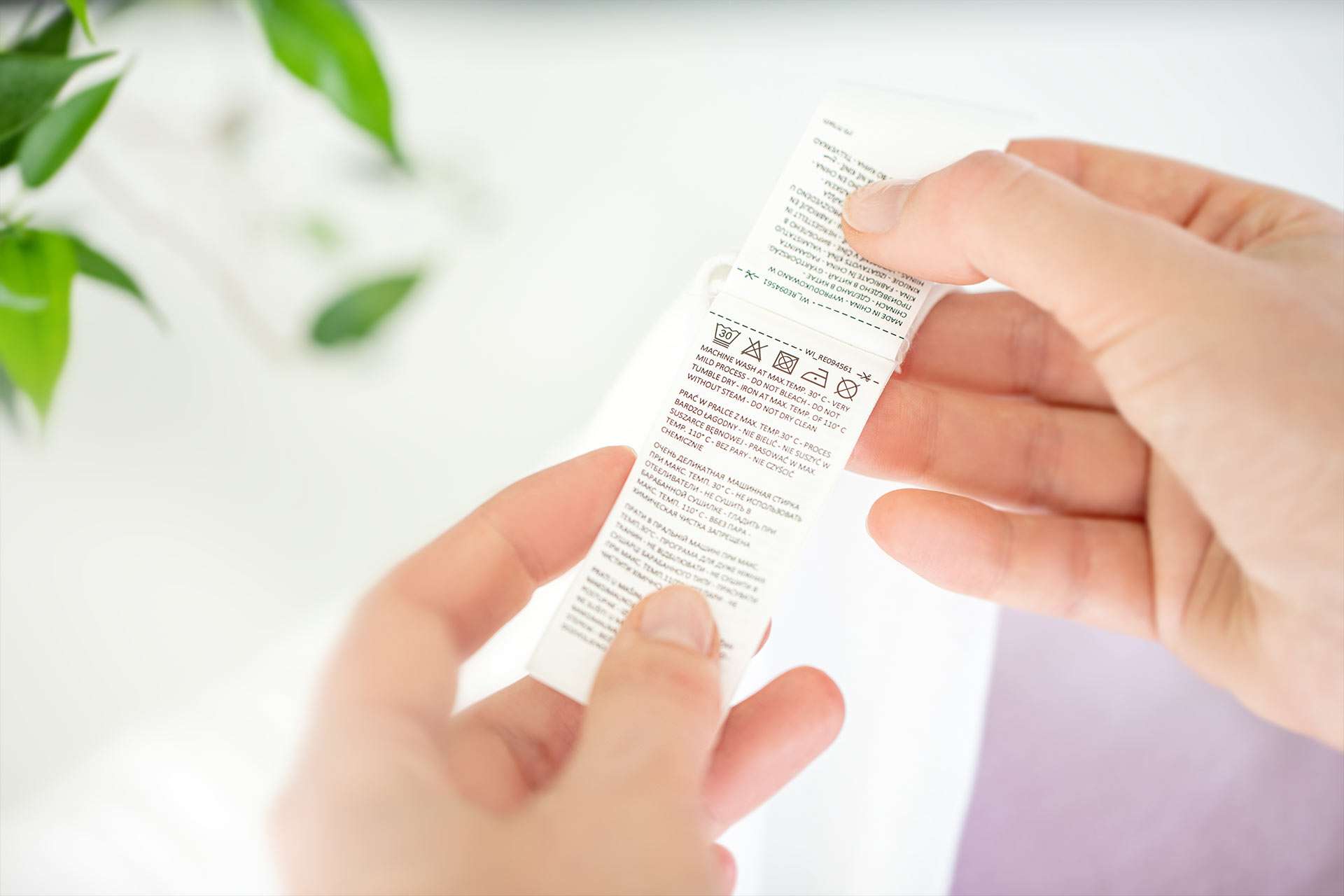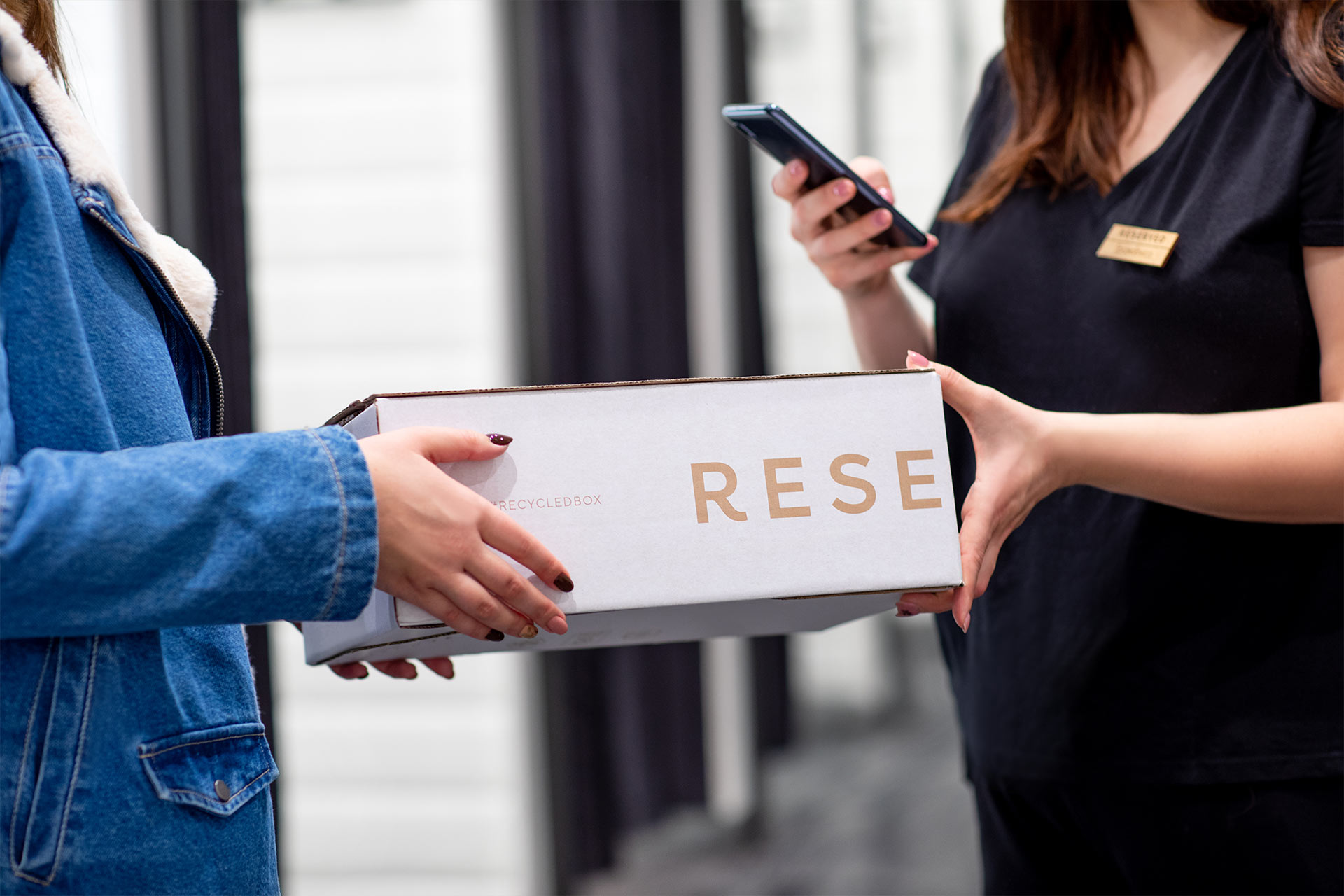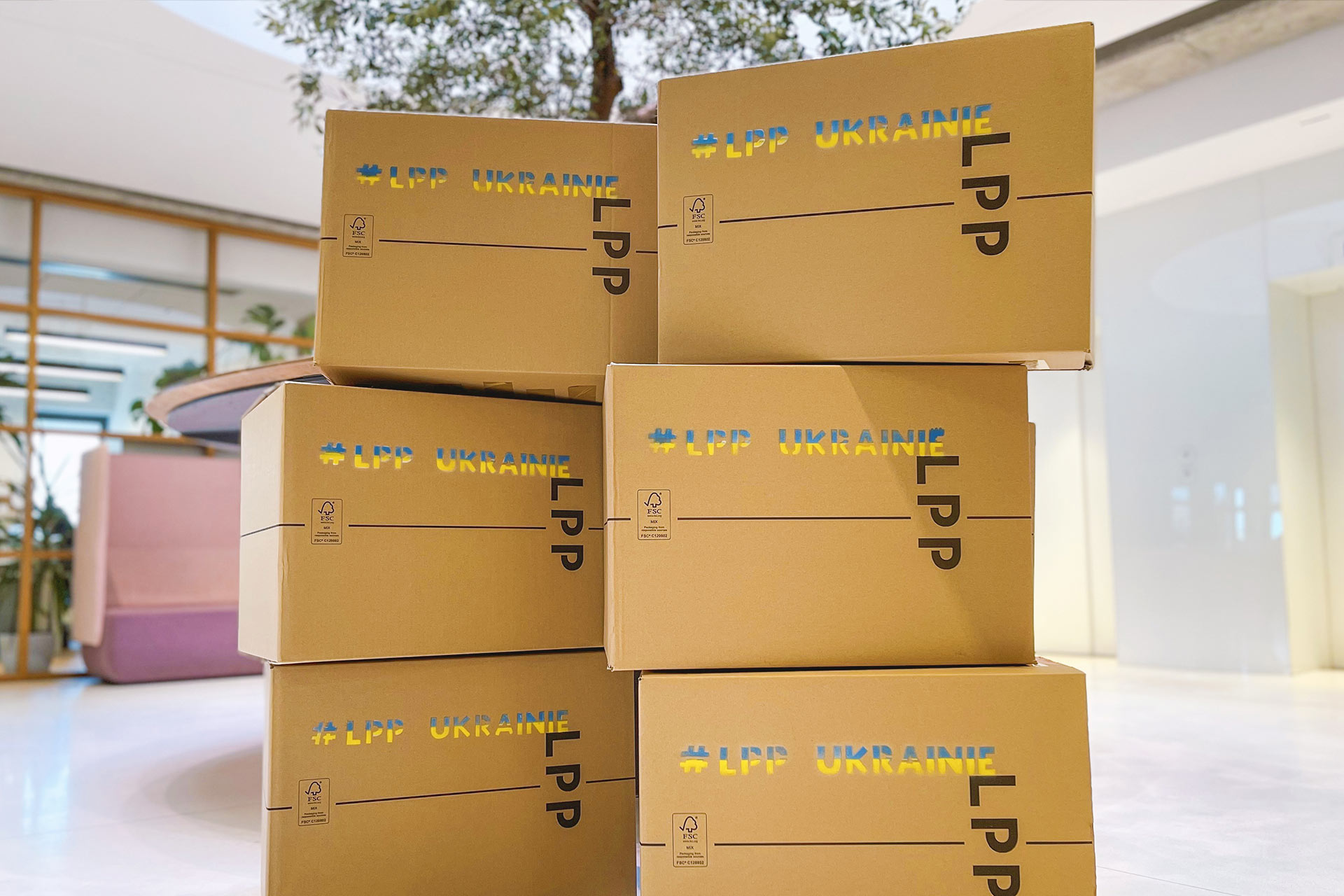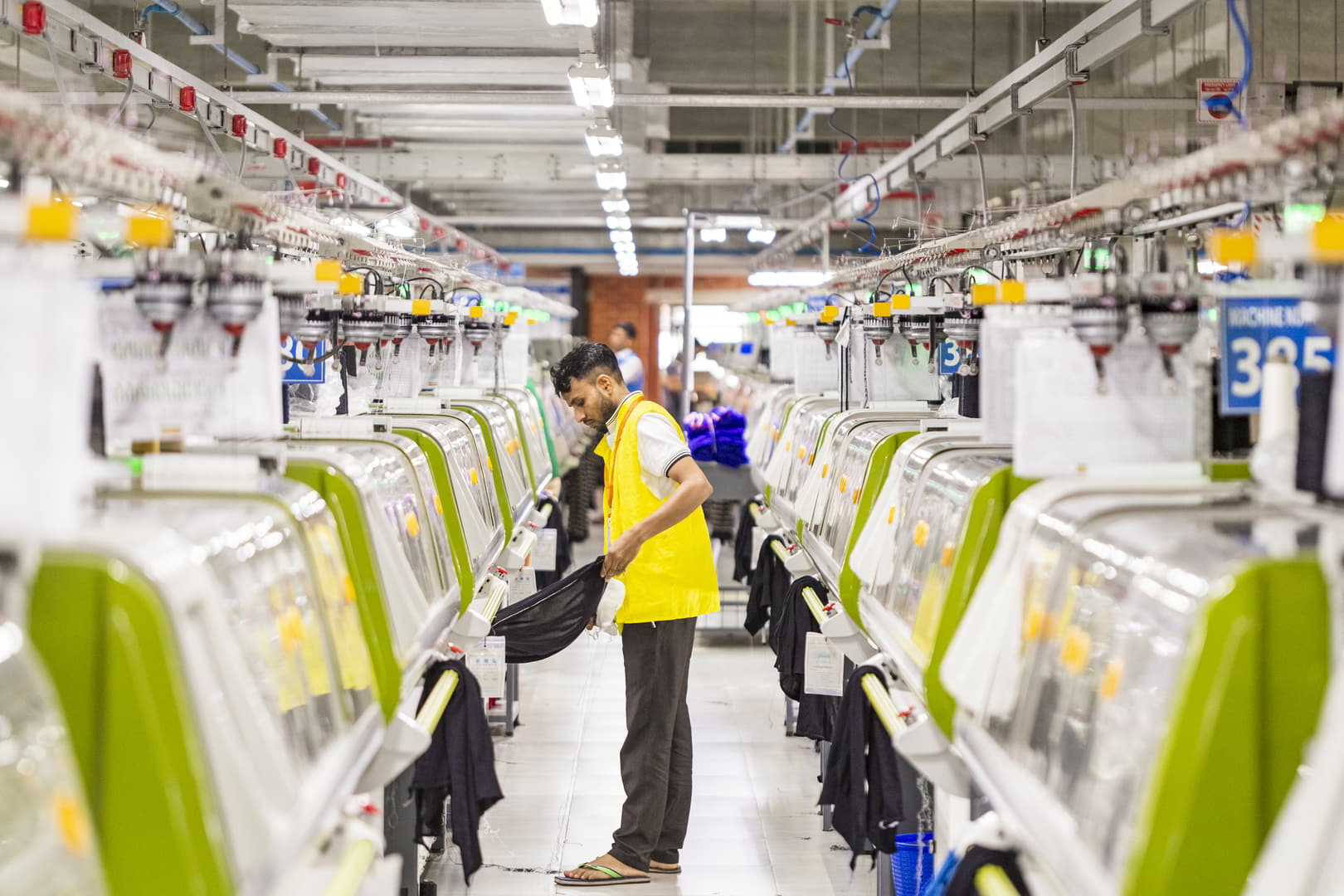Towards a circular economy
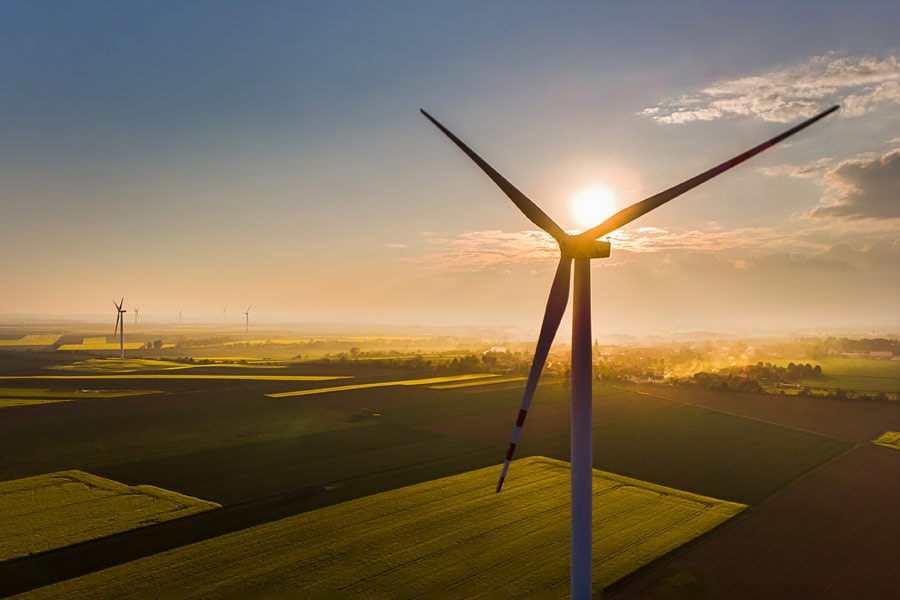
- In 2022, the Gdańsk-based company focused on implementing further projects in the area of circular economy, bearing in mind the increasing need to respect natural resources and reduce environmental impact.
- In the past financial year alone, the Polish clothing manufacturer reduced CO2 emissions by 8%, thanks to, among other things, the rational use of energy based on renewable sources.
- As part of reducing packaging waste, the company reused over 2 million cardboard boxes. It also reduced plastics consumption by a further 567 tonnes, which translates into a cumulative reduction of 1,600 tonnes of plastics over six years.
- Focusing on the environmental benefits of the second circuit, the company has extended its second-hand clothing collection project to now cover all LPP brand stores in Poland.
- LPP has also begun collaborations in the search for effective methods of recycling polyester and multi-grade fabrics with the Use Waste start-up and Sustainable Fashion Institute.
- The priority of the past year in the area of social activity was to help Ukrainian citizens and LPP employees from Ukraine, with the total financial value of the aid exceeding PLN 20 million. At the same time, the LPP Foundation supported those in need in the company’s immediate environment, allocating over PLN 3 million to this end.
The difficult geopolitical and economic situation of the past year and the discontinuance of operations in one of the key markets so far has not prevented LPP from pursuing its business strategy, focused on three pillars: the omnichannel model, digitalisation and sustainable development. As shown in the company’s latest non-financial report, the business actions taken and the results generated during this time have allowed us to inject PLN 1.7 billion into the national budget in the form of levies and taxes, but just as importantly, to implement important initiatives for emissions reduction and driving the actions aimed towards a circular economy.
– Looking at our entire business model through the prism of our environmental impact and striving to reduce emissions and be more respectful of resources, we are convinced that we have taken the only right direction – towards a circular economy. We treat environmental and social challenges as one of the main pillars of the company’s future, on a par with realising our business potential – comments Dorota Jankowska-Tomków, Procurement and ESG Director at LPP. – Although the changes are gradual, each successive step, such as the use of renewable energy sources, the reuse of cardboard boxes or the reduction of plastics, brings us closer to the overarching goal of climate neutrality. Last year, we reduced our emissions by 8% and we continue our efforts to improve this result. We also see that ambitious targets require well-planned measures, so later this year we anticipate revising our sustainability strategy to better respond to current social and environmental challenges – adds Dorota Jankowska-Tomków.
The starting point for taking actions aimed at reducing the company’s environmental impact was to calculate the carbon footprint across all scopes in 2021. Then, in 2022, the company submitted decarbonisation targets for verification by the Science Based Targets initiative, a global partnership of international organisations supporting the private sector in the transition to a zero-carbon economy. Owing to this and based on the scientific rationale of SBTi, LPP selected the scopes of operations with the highest emissions and where the potential to reduce emissions is clearly visible.
Circular fashion
A key challenge for the fashion industry still consists in closing the loop through the rational use of resources, including above all already produced clothes and fabrics. For several years, the company has been developing a second-hand clothing collection project, which has already been carried out in all LPP brand stores in Poland since 2022. Clothes with a potential for reusing are donated through the St. Brother Albert’s Aid Society to people in need. The remaining ones are prepared to for recycling.
In parallel, the company has constantly been looking for the answer to the missing link in the clothing life cycle, namely the reuse of materials. The polyester currently used, which is recycled from PET bottles, has less environmental impact and a lower carbon footprint. For LPP, however, this is not the final solution, hence it aims to develop a technology to fully recycle used polyester fabrics and obtain yarn for the production of new fibres. To this end, the company has partnered with a Polish start-up – Use Waste. An important step in the search for effective ways to recycle fabrics was also the partnership with Sustainable Fashion Institute, which allowed for analysing the market for effective methods of processing multi-grade materials. The implementation of such projects on a business scale will allow fabrics to be used not only for a second, but also for multiple cycles in the future. The element supporting and complementing the entire life cycle of garments, in turn, is the growing consumer awareness of circular fashion. Bearing in mind how important it is to promote good practices in this context, LPP launched the educational campaign “Look after your clothes”, through which customers could broaden their knowledge of the principles of proper clothing care and how to use their clothes for longer with a lower carbon footprint.
Less plastics and 2 million second-circulation cardboard boxes
Aiming to close the loop at every stage of its operations, LPP also reduced its use of plastics in packaging by a further 567 tonnes in the past year, meaning that the company has already reduced its use by 1,600 tonnes since 2017. The company has also consistently delivered on its commitment to gradually eliminate single-use plastics. Already, all plastic packaging is fully recyclable, so that it can be used, among other things, as waste bags at a later stage. LPP has also reduced the use of cardboard packaging in the process of supplying stores and warehouses. By implementing a packaging standardisation process within the Supplier Portal system, it was possible to optimise the packaging of goods, better fill the boxes, and make more optimal use of container and warehouse space. At the same time, the introduction of a reinforced cardboard packaging design allowed the boxes to be used several times. In this way, the company reused over 2 million cardboard boxes in 2022, which translates into around 41,000 trees saved from felling.
Energy consumption under control
In view of the current climate challenges, it was important to reduce the use of conventional energy sources and safeguard the company’s energy needs. Back in 2021, LPP signed one of the largest PPAs (Power Purchase Agreement) for renewable energy in Poland. As a result, the company’s offices in Poland, but also the Distribution Centres in Pruszcz Gdański and Brześć Kujawski, have been powered by wind energy since 2023. The contract will cover a further 10 years, and Figene has built an additional wind farm for its implementation. Taking a closer look at its stationary network, the company has also taken measures to reduce energy consumption in stores by 10%. It has achieved this through, among other things, the installation of LED lighting in 395 new stores and telemetry systems to optimise electricity use. By the end of 2022, around 830 stores in 12 countries had been covered by utility consumption monitoring, with a further 700 installations planned by the end of 2023.
Focus on people
During the past year, a priority in the area of LPP’s social activities was the support of employees from Ukraine. – The care for the immediate environment and the sensitivity of our employees, which – demonstrated over many years – have been the driving force of the LPP Foundation on a daily basis, has surpassed its previous potential in the face of war and the immediate threat to the company’s employees. Although we are involved in many social projects every year, last year’s mobilisation again positively surprised us. Apart from this exceptional situation, which required our involvement, we continued to carry out the LPP Foundation’s regular projects, primarily supporting the wards of children’s homes, people at risk of social exclusion, victims of disasters and natural disasters in our immediate neighbourhood – comments Patrycja Zbytniewska, leader of social policy and non-financial reporting at LPP, president of the LPP Foundation.
In the six months since the outbreak of the war, around 300 LPP employees and their relatives have received aid worth nearly PLN 3 million, and the total value of in-kind and financial aid for those affected by the war in Ukraine has exceeded PLN 20 million. During the year, LPP volunteers willingly engaged in helping their colleagues and got involved in other Foundation projects, donating 8,212 hours of work. Last year, the company donated over 180,000 items of clothing to social causes, and the total value of the LPP Foundation’s cash donations, in addition to its support for Ukraine, exceeded PLN 3 million.
The nurturing of sensitivity to others is also reflected in the “LPP Group Policy on Diversity Management, Equal Treatment and Building a Culture of Inclusion” adopted in the 2022″, which is an expression of appreciation of the diversity of the LPP team, but also a commitment to building a friendly workplace that supports equal treatment and counteracts discrimination. One of the elements of the implementation of this policy was the Diversity&Inclusion Academy – a series of interactive, open webinars aimed at all employees of the company’s headquarters and foreign companies. The aim of the Academy was to awaken sensitivity to diversity, to raise awareness of the importance of micro-transmissions and micro-aggressions, the role of communication building an inclusive culture. An important element of the programme was also to equip those attending with specific knowledge and skills in working with disputes and conflicts that may arise in the context of diversity. Each of the five meetings was attended by an average of around 400 people.
In the past year, we also focused on social challenges in the value chain. With a view to ensuring adequate working conditions throughout the production cycle, the company joined amfori BSCI, which provides a new, objective source of information on the situation of workers in factories. Thanks to access to reliable knowledge on the production facilities, the company can choose only those suppliers who provide their employees with social conditions that are in line with the standards adopted by the company.

______________________________________________________________________________
LPP is a Polish family business and one of the fastest growing clothing companies in the region of Central and Eastern Europe. For 30 years, it has been successfully operating in Poland and abroad, offering its collections in such prestigious capitals as London, Helsinki or Tel Aviv. LPP manages five fashion brands: Reserved, Cropp, House, Mohito, and Sinsay, whose offer is available today in stationary and online stores in nearly 40 markets worldwide. The company has a chain of nearly 2000 stores with the total area of 1.6 million m2 and distributes clothing and accessories to three continents every year. LPP also plays an important role as it employs nearly 30 thousand people in its offices and sales structures in Poland, Europe, Asia, and Africa. The company is listed on the Warsaw Stock Exchange in the WIG20 index and belongs to the prestigious MSCI Poland index.


